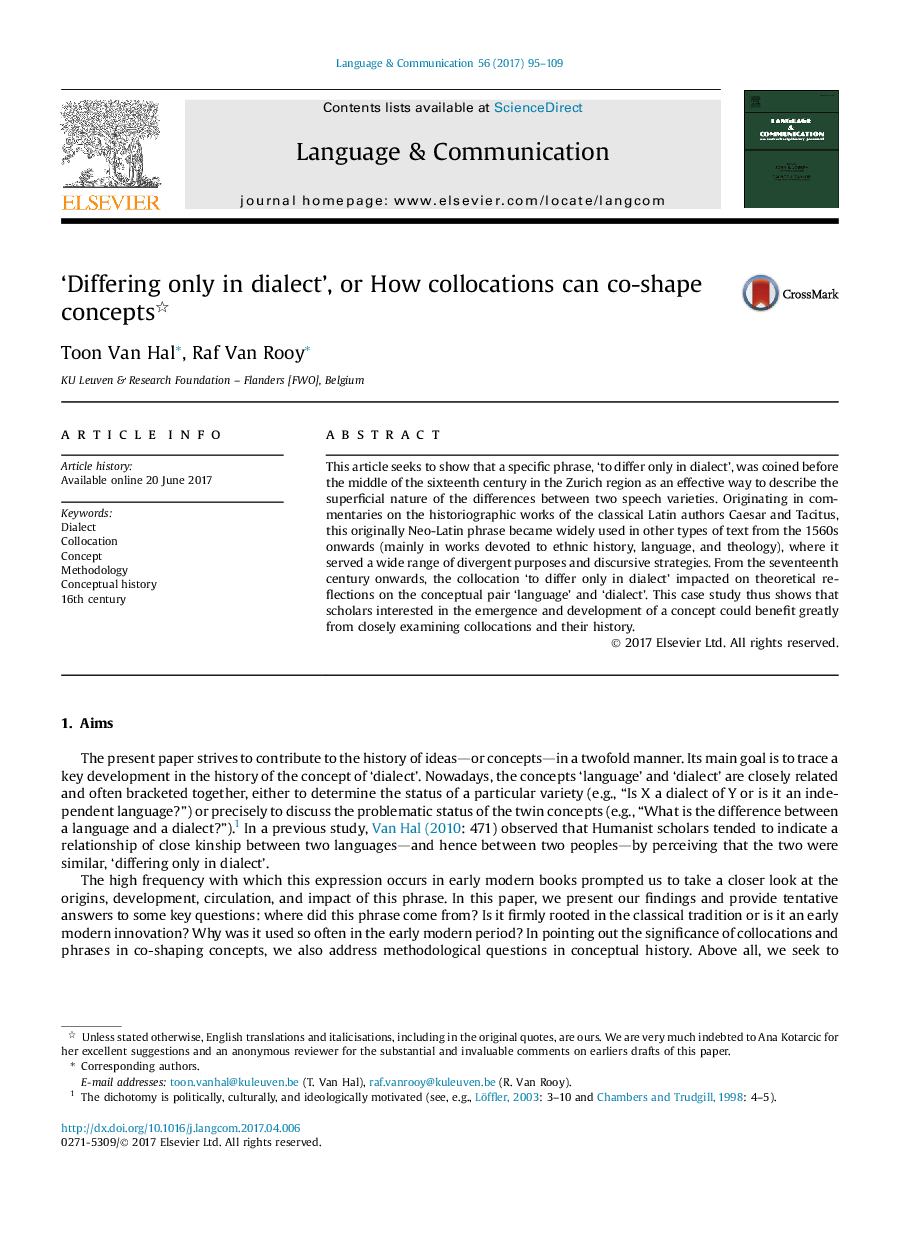| کد مقاله | کد نشریه | سال انتشار | مقاله انگلیسی | نسخه تمام متن |
|---|---|---|---|---|
| 5042890 | 1474909 | 2017 | 15 صفحه PDF | دانلود رایگان |
- The study traces a key development in the history of the concept of “dialect”.
- The phrase “to differ only in dialect” was coined in the sixteenth century.
- Originating in commentaries, it became widely used in other types of text.
- The phrase impacted on interpretations of the conceptual pair “language” and “dialect”.
- This case study shows how collocations can co-shape concepts.
This article seeks to show that a specific phrase, 'to differ only in dialect', was coined before the middle of the sixteenth century in the Zurich region as an effective way to describe the superficial nature of the differences between two speech varieties. Originating in commentaries on the historiographic works of the classical Latin authors Caesar and Tacitus, this originally Neo-Latin phrase became widely used in other types of text from the 1560s onwards (mainly in works devoted to ethnic history, language, and theology), where it served a wide range of divergent purposes and discursive strategies. From the seventeenth century onwards, the collocation 'to differ only in dialect' impacted on theoretical reflections on the conceptual pair 'language' and 'dialect'. This case study thus shows that scholars interested in the emergence and development of a concept could benefit greatly from closely examining collocations and their history.
Journal: Language & Communication - Volume 56, September 2017, Pages 95-109
